
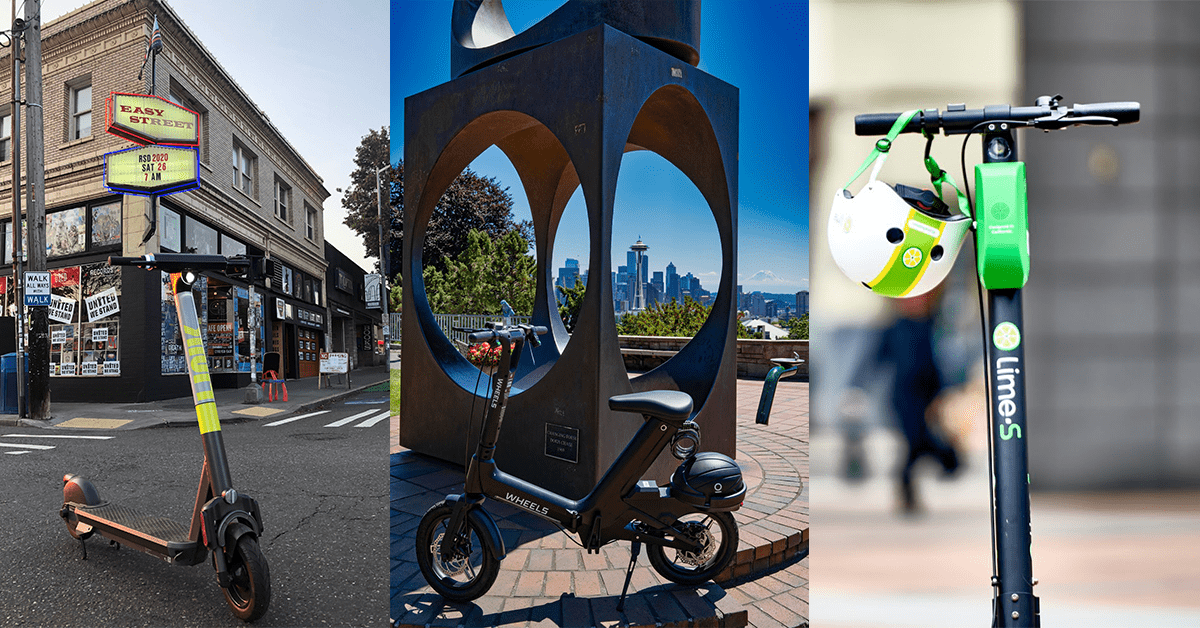
Following a careful review process, we’ve invited three potential scooter companies (Lime, Wheels, and LINK) to seek permits.
This is one of the final steps towards launching the new Scooter Share Program authorized by Seattle City Council earlier this week, and is the culmination of months of planning and coordination to create a safe, equitable, and accessible scooter share program based on ongoing conversations with the community, stakeholders, and public safety experts.
We expect that people may be able to start renting scooters in Seattle sometime in the very near future, depending on how quickly these companies are able to complete their permit paperwork, hire local staff, and get their fleet of scooters ready.
Scooter share will soon add another sustainable way for people to get around safely and sustainably, complementing Seattle’s already robust transportation system.
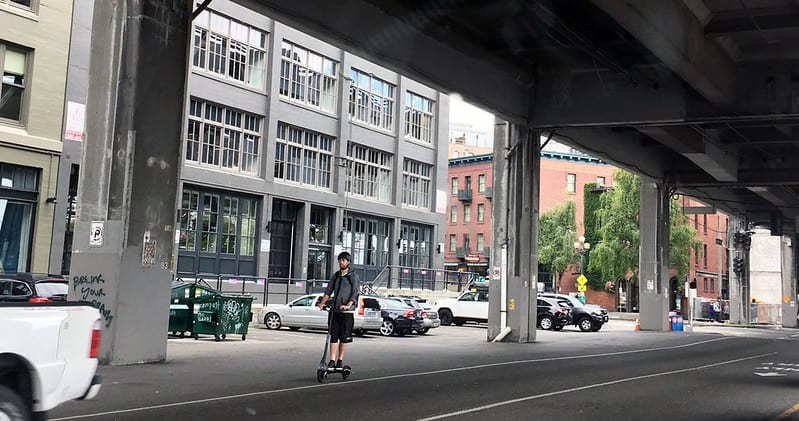
These fun, accessible, and convenient vehicles will provide another resource to ease crowding on transit, encourage physically distant travel, and promote driving less. Providing a new option for people to get to their jobs, medical appointments, or other essential destinations in a climate and congestion friendly manner is especially important right now, as we continue to respond to the challenges of COVID-19 and the emergency West Seattle High-Rise Bridge closure.
We took our time to address community concerns and make sure Scooter Share will work for everyone.
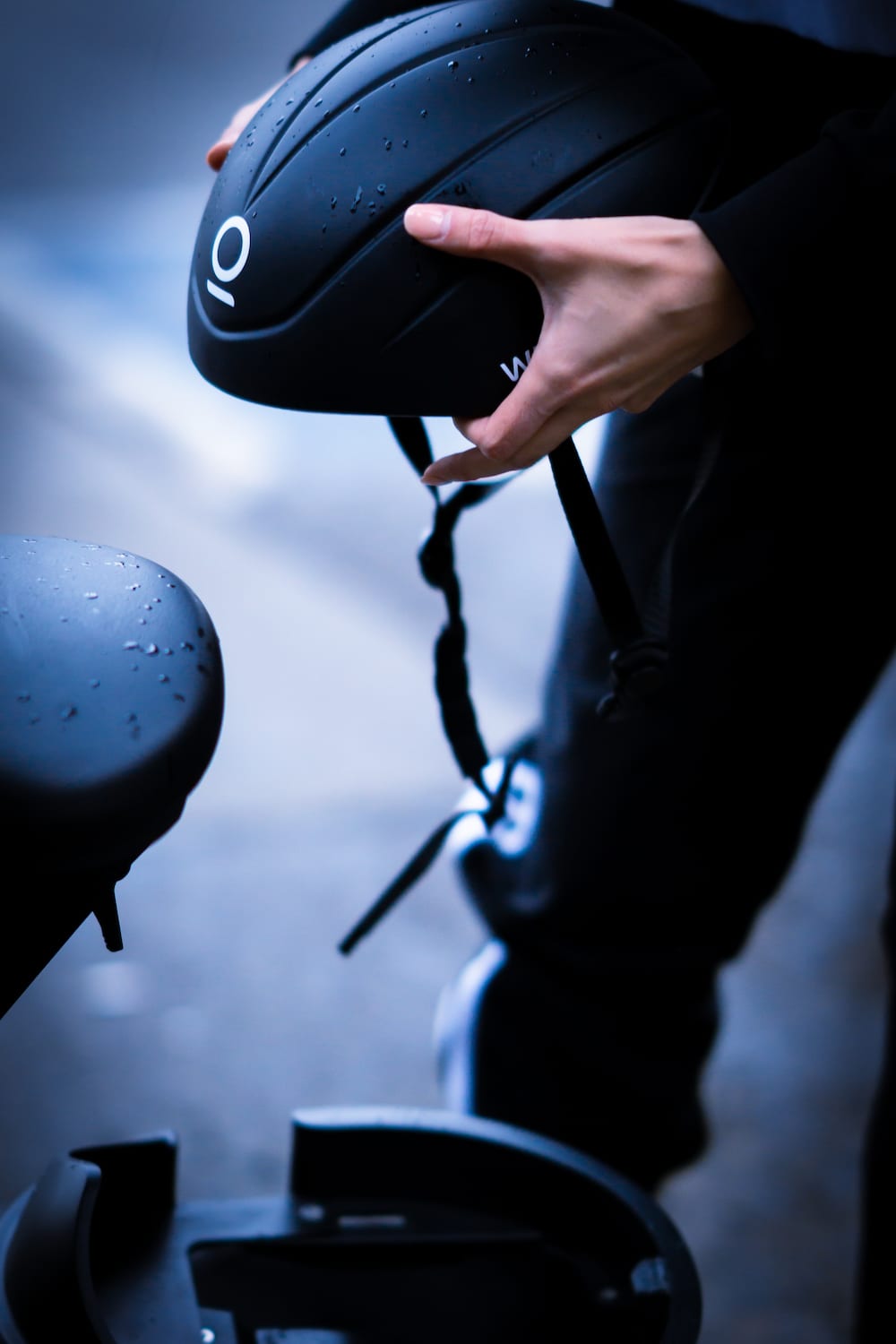
Seattle created the nation’s first free-floating bike share program in 2017, and then chose to take a deliberative and careful approach to expanding this program to include scooters. This gave us opportunity to learn from what worked well – and what didn’t – in other cities and from our own bike share program. This included many conversations with the community and health experts to inform our approach to safety, parking, education, accessibility, equity, and affordability.
Wheels helmet. Photo Credit: Wheels.
In December 2019, we submitted an environmental review plan to the Seattle Hearings Examiner, which was approved in May 2020. In August we presented the plan for the shared scooter program to Seattle City Council Transportation and Utilities Committee.
Earlier this week, City Council voted to pass new legislation allowing people to ride scooters in bike lanes and other safe locations, and authorizing SDOT to issue permits for companies to rent free-floating scooters.
The result is a scooter share program that includes many unique innovations to address challenges experienced in other cities. Here’s a quick summary of just some of the things we are doing (more details here).
- Safety: We built the scooter share pilot around pedestrian and rider safety, based on close collaboration with medical experts at the University of Washington and Public Health – Seattle & King County. This includes requiring companies to build safer scooters, a plan to make sure people have access to helmets, a built-in speed limit cap of 8 mph on people’s first ride and 15 mph after that. Meanwhile, we’re making good progress on our work to reduce speed limits to 25 mph on major streets across the city, and invest in protected bike lanes downtown and around town.
- Parking: For scooter share to be successful, we need a solid plan to ensure scooters are parked correctly and do not block sidewalks or create barriers for people with disabilities. Over the past four years, we have built 3,000 new parking spaces for bikes and scooters, including 1,500 funded by the Move Seattle Levy and another 1,500 funded by bike share program. Over the past year, we’ve also been working on other ways to address parking issues and to make sure people know how to park correctly, and have seen notable improvements in bike share parking.
- Equity: We’re making sure our scooter program is an equitable, affordable, and accessible option for more people. Scooter companies will be required to provide reduced-rate plans for low-income communities and provide access to those who lack a cell phone, bank account or credit card. Our pilot will include scooters with seats that can work as a convenient option for people with mobility impairments, and the program will also continue to fund our partnership with Outdoors for All Foundation to continue the nation’s first free recreational adaptive cycling rental for people with disabilities.
Seattle City Council’s approval paves the way for the final steps to create the scooter share program.
To ensure that the program runs smoothly, we’ll start small by permitting three companies to operate up to 500 scooters each with the potential to grow up to 2,000 scooters per company in the future if things go well.
We invited scooter share companies to apply to our program earlier this summer. Nine companies applied and we’ve spent the past month ranking their plans for safety, equity, accessibility, affordability, technology, and other important criteria.
We also considered their plans to make sure scooters served the people of West Seattle, Delridge, South Park, and Georgetown most affected by the West Seattle High-Rise Bridge closure.
We then selected the highest ranking applications in three categories: a standing scooter company, a seated scooter company, and a company which offers both bikes and scooters.
We’ve notified the three highest ranking companies that they’re the first in line to receive a permit. These companies may start renting scooters once they have agreed to and completed all the permit requirements, and taken care of any other business like hiring local staff and getting their fleet of scooters ready to ride. If a company isn’t able to meet the City’s conditions in a timely manner, we’ll offer that permit to a competitive runner-up. We expect this’ll take several weeks, or faster if a company is ready to act quickly.
We selected the three categories of company to ensure people have a good variety of choices for how to get around.
LINK
LINK was chosen as the highest ranking company offering standing scooters.
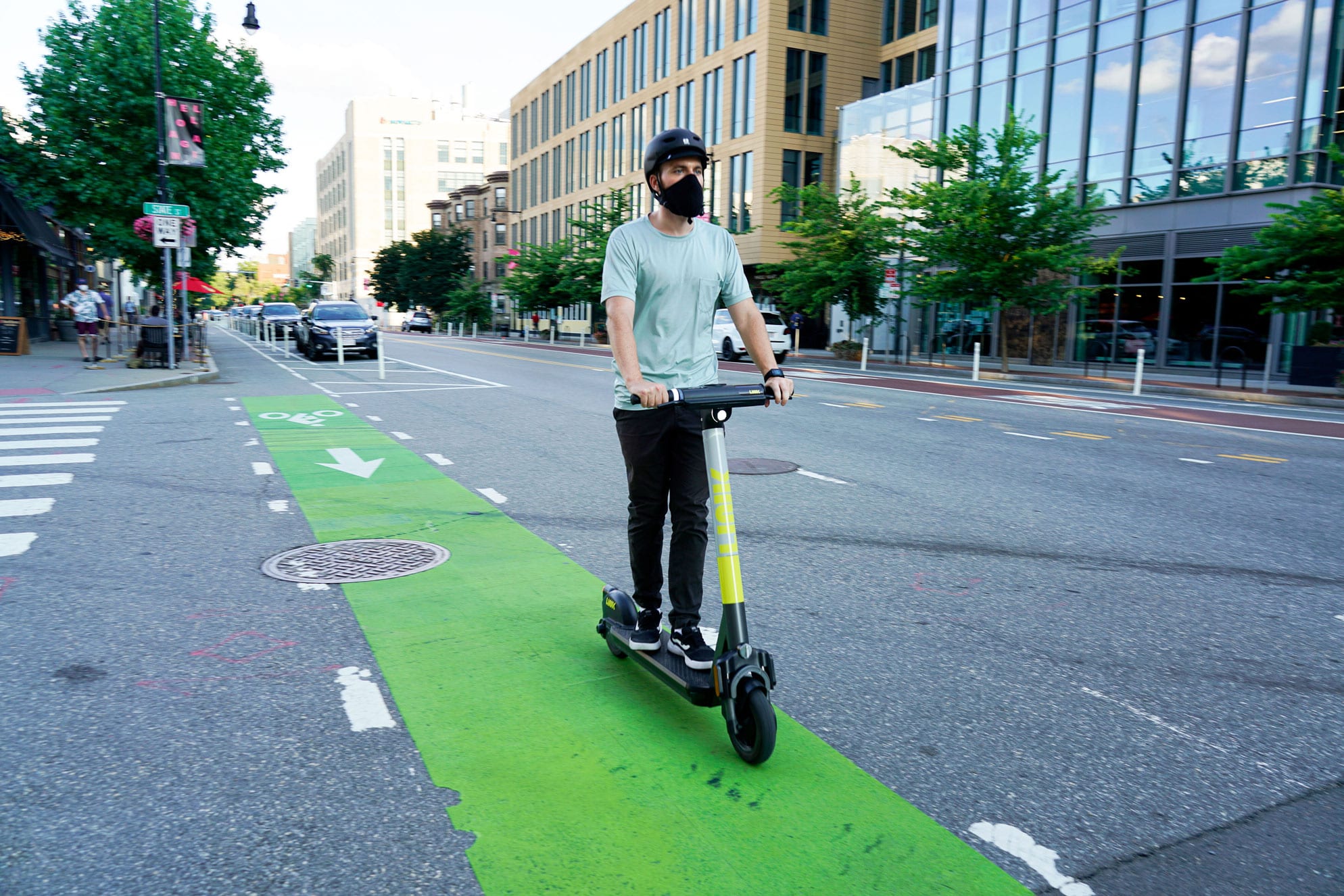
This small, convenient option is the standard style of scooter which has proven very popular in cities across the world. LINK is a newer company that resulted from the merger of Superpedestrian, a leading electric micromobility innovator, and longtime bike share vendor Zagster. LINK offers a new, more robust stand-style scooter that we are excited might reduce maintenance and safety concerns.
Wheels
Wheels was chosen as the highest ranking company offering seated scooters, which are a more accessible option for many people with mobility impairments.

Wheels scooter in Seattle. Photo Credit: Wheels.
Living up to their name, these scooters have larger wheels which may offer a more stable ride suited to Seattle’s hills and weather. Wheels’ unique sitting style scooters have been available in cities across the world, including Los Angeles, San Diego, Dallas, Orlando, Vienna, and Brussels.
Beginning with a portion of the fleet, and expanding to every device by fall, Wheels scooters in Seattle will also include a built-in helmet with a biodegradable sanitation liner which can be removed after each ride so the helmet will be clean for the next customer.
Lime
Lime was chosen as a company that will offer both bikes and scooters.
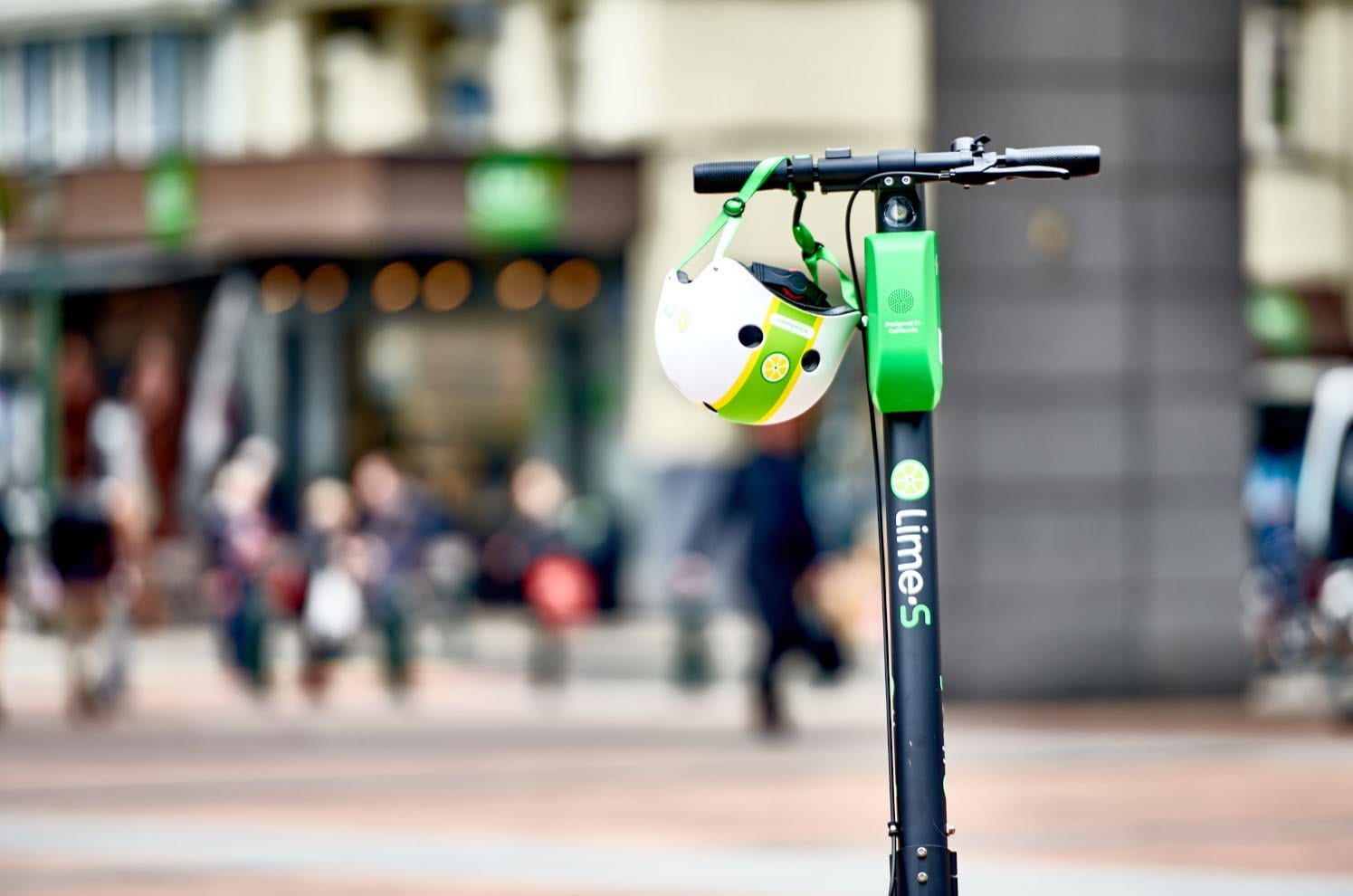
In order to support bike share, which has become a very important part of Seattle’s transportation system, we designated that one permit slot would go to a company which also offered bikes. Like the other companies, they will be able to start with 500 scooters and potentially grow to 2,000 scooters. Lime is already permitted to offer bike share in Seattle, and has committed to grow their bike share fleet from around 500 bikes to 2,000 bikes this fall. We hope to evaluate the different types of trips each service meets, and how bikes and scooters can financially and operationally sustain each other.
Here’s what’s next…
Now that the program is moving forward, we’ll be working to launch our safety study.
We’ll shape the study to see how the risk of scooter travel in Seattle compares to other modes like walking and biking. We’ll also see if slowed first rides have a positive impact on safety, and examine the risk of riding a sit-style scooter vs the traditional standing scooter.
In addition to the robust in-app education required of the new operators, we’ll also be launching our own outreach and education campaign.
Initially, we’ll focus our efforts on essential workers, making sure that scooters are a great option for workers to move about the city in clean, healthy manner. Once in-person gatherings are safer, we’ll expand to community outreach events in low-income communities of color, making sure people know how to ride safely and working to get people enrolled in low-income plans. We are excited to continue building this program and to be one step closer to the launch of scooter share in Seattle!